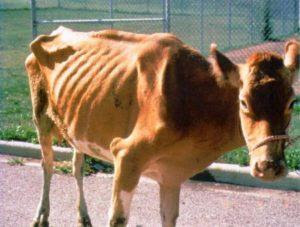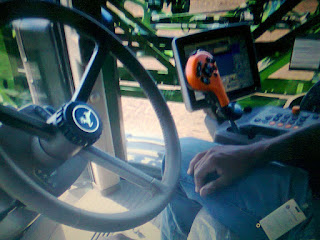Calves are born with an underdeveloped immune system which makes them prone to infections and diseases than older animals.
1)Johne’s Disease: Caused by a bacteria called Mycobacterium avium subspecies para tuberculosis. It is passed on if a calf ingests infected colostrum or infected manure. It then damages the gut wall.
Symptom: Calves are occasionally infected at birth when the mother is in advanced stage of the disease. If a newborn becomes infected, signs of this aren’t likely to surface until two or more years later. Because of this, you'll want to be checking out the dam for symptoms instead.
The main symptoms are weight loss and scour.

Prevention:
1)Remove the calf from the calving pens soon as possible and introduce them to a clean dry and uncontaminated environment.
2)Collect the colostrum yourself and make sure your hands are clean.
3)Only feed colostrum from test negative cows.
2 )Calf Pneumonia: caused by complex interaction between viral and bacterial pathogens, environmental stress factors and the animal’s own resilience to disease.
Symptom: 1)Temperature greater than 39.5C.
2) Increased breathing rate and effort.
3)coughing and nasal discharge.
The prevention includes the following:
1) Well ventilated facilities reduces the risk of calves developing respiratory infections or pneumonia. Badly ventilated sheds retain too much moisture in the air and let it gather into droplets, and then puddles. These are the perfect breeding ground for harmful bacteria.
2)Keep calves dry and well-bedded. Calves are not born with a winter hair coat so they need that extra layer to help keep them strong and healthy. Additionally they need to be in a clean place so refresh it regularly.
3)Feed enough milk to keep the calf warm, and healthy especially during cold weather.
4)Avoid nose to nose contact, Infectious saliva and moisture from the respiratory tract can cause pneumonia to spread from calf to calf.
5)Keep age groups separated in group housing, older calves will have a more developed immune system.
6)Vaccinate the cow/heifer and the protection is transferred via colostrum.
7)Avoid buying calves that could carry new bugs
. 8)Prevent aspiration pneumonia caused by incorrect feeding.
9)Minimize weaning stress by leaving rehousing, tagging and dehorning until later.
Treatment is with antibiotics.














